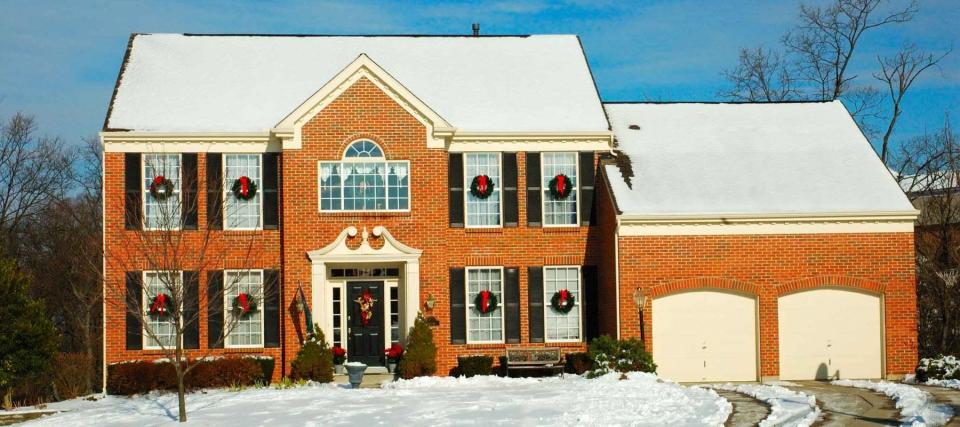Mortgage rates edge higher — but refinances under 2% are still available

Mortgage rates have moved up a couple of notches following upbeat economic news and rate-hike rumblings from the Federal Reserve, according to a widely followed survey.
While rates are still substantially cheaper than just a few years ago, further increases are likely, experts say.
Homeowners who are hoping to refinance before mortgage rates really start to climb may find they can still save thousands of dollars by bagging an attractive refi rate.
30-year fixed mortgage rates

The average interest rate on a 30-year fixed-rate mortgage rose to 3.12% last week, from 3.10% the previous week, mortgage giant Freddie Mac is reporting.
“Mortgage rates inched up as a result of economic improvement and a shift in monetary policy guidance,” says Sam Khater, Freddie Mac’s chief economist. U.S. unemployment is sinking, wages are climbing, and the Federal Reserve is quickly winding down its pandemic policies.
One year ago, the Freddie Mac survey had 30-year fixed-rate loans averaging a much cheaper 2.67%. But rates are still much lower than they were before COVID-19 became a household term.
The bargains for mortgage borrowers may not last much longer. Following a two-day meeting last week, the Fed indicated it’s likely to raise interest rates three times in 2022.
“When the Fed increases its interest rates, banks do, too. And when that happens, mortgage rates go up for borrowers,” says Nadia Evangelou, senior economist and forecaster for the National Association of Realtors.
15-year fixed mortgage rates
The interest rate on a 15-year fixed-rate mortgage averaged 2.34% last week, down from 2.38% the previous week, Freddie Mac says.
Last year at this time, 15-year loans were averaging 2.21%.
Note that Freddie Mac’s numbers are indeed averages, so you may find a lender offering below-average rates. Look around and you might easily find 30-year mortgages at under 3% — and 15-year loans going for less than 2%.
The shorter-term option is popular among refinancing homeowners who can handle higher monthly payments. With a 15-year mortgage, you’ll pay much less interest over the life of your loan than you would with a 30-year mortgage.
5-year adjustable mortgage rates
Rates on five-year adjustable-rate mortgages (ARMs) averaged 2.45% last week, unchanged from a week earlier. A year ago, the loans were averaging 2.79%.
ARMs typically start out with lower rates than fixed-rate mortgages. But after a period of time, they start to adjust — that is, move up or down in sync with the prime rate or another benchmark.
A 5/1 ARM, for example, offers five years of fixed interest before the adjustments start. With rates rising, it could make sense to refi an ARM to a more stable fixed-rate loan.
How will omicron affect mortgage rates?

Mortgage rates may moderate in the near term, depending on what happens with the fast-spreading omicron variant. When earlier COVID variants raised economic threat levels, they helped keep mortgage rates down.
“If omicron ravages the U.S. in the way it is affecting much of Europe, that would almost certainly inflict significant economic damage” Peter Warden, editor of The Mortgage Reports, writes.
“Such a disaster is highly likely to bring lower mortgage rates, regardless of what the Fed or anyone else says or does,” Warden says. “But we’re not there yet.”
Still, positive economic data, along with the Fed’s plan to reduce its pandemic purchases of Treasury bonds and mortgage-backed securities faster than expected, signal higher rates ahead, says Danielle Hale, chief economist of Realtor.com.
Finding the best rate on a refi

Rates were at their lowest at the start of 2021, and many who refinanced into new 30-year loans during the first half of the year have saved over $2,800 in mortgage payments annually, according to Freddie Mac research.
If you’re looking to secure the lowest interest rate available, you’ll want to make sure your credit is the best it can be. If you don’t know where your credit score stands, It’s easy now to check your credit score for free.
When you start the mortgage process, be sure to compare offers from multiple mortgage lenders to find the lowest rate in your area and for a person with your credit profile. Comparing at least five rate quotes is widely considered to be the best route to getting a deeply low rate.
If you decide a refi isn’t what you want or need, look for other ways to cut the cost of homeownership. For instance, when it’s time to renew your homeowners insurance, gather quotes from multiple insurers — so you can feel confident you’re not overpaying.
This article provides information only and should not be construed as advice. It is provided without warranty of any kind.




